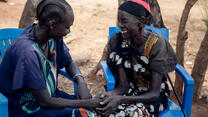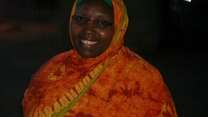Reports of gender-based violence (GBV) are common in camps for refugees and displaced populations. In the Dadaab refugee camps in north-eastern Kenya, the International Rescue Committee (IRC) and CARE International (CARE) implement programmes that aim to both respond to and prevent GBV.
A cornerstone of this work has been to train refugees, known as refugee community workers, to deliver aspects of GBV prevention and response work in order to develop a broader implementation of traditional GBV outreach, community mobilisation, and case management. To date, there has been limited rigorous research on this broader GBV case management plus task sharing approach in the context of a refugee camp setting.
To address this key gap in evidence, the London School of Hygiene and Tropical Medicine (LSHTM) and the African Population and Health Research Centre (APHRC), in collaboration with IRC and CARE, have sought to assess this model to understand its feasibility, acceptability, and influence among female survivors of GBV accessing care.
Data for this study, funded by UK aid, were collected in the Dadaab refugee camps between 2014 and 2017, which coincided with a temporary decision to close the camp and repatriate Somali refugees.
The research confirms the magnitude and complexity of the violence that women and girls experience in the camps in Dadaab. In the year leading up to this study, 47% of women accessing the GBV centres for case management reported experiencing intimate partner violence and 39% reported experiencing non-partner violence.
In addition, the study highlights the specific risks, challenges, opportunities and rewards experienced by refugee community workers in their dual role of community members and GBV activists living side-by-side with survivors and perpetrators of violence. Solely related to their work as GBV caseworkers, one in three refugee community workers reported experiencing non-partner violence in the last 12 months. Despite this, 93% of refugee community workers stated their work was rewarding or extremely rewarding.
The majority of women (82%) accessing services reported that their interactions with refugee community workers had a positive effect, and that working with them was useful. However, having refugees deliver services to their own community was not without its challenges, and survivors raised issues on confidentiality, mistranslations, and perceived biases on clan differences.
The study also provides an insight into the importance of contextual factors in case management, and the impact of the announcement of the (now-delayed) camp closure in Dadaab. Priorities of both the camp population and service providers (GBV and referral services) shifted greatly during this time of uncertainty and affected when and how women were accessing services.



